Outdoor Studies
Join a team of adventurers
Outdoor Studies is an intensive humanities program that offers students the opportunity to develop skills and characteristics that are essential to success as a leader in outdoor and adventure settings and to better understand the human relationship to the natural world.
The program incorporates outdoor risk management, leadership skills, specific outdoor activity skills, and academic work. The combination of outdoor and academic courses is designed to develop knowledge and personal traits such as self-reliance and good judgment.
Many students are working to become outdoor professionals, are curious about better understanding the natural world, or simply want to achieve more general goals related to personal development and leadership. Options include a two-semester intensive certificate program, four-year bachelor programs, and a minor.
Outdoor Studies Degrees
Student Experience
Living Out My Dream
UAS Alumna Emma Lyddan graduated with a BA in Geography and Environmental Studies with an emphasis in Outdoor Studies. She tested her guiding skills through a successful summit of Denali and a crossing of the Juneau Icefield. Within months of graduating, Emma started her career in Glacier Grey in Torres del Paine National Park, guiding in Patagonia!
Outdoor Studies Students in Japan
Come along with the Outdoor Studies Capstone class while they explore backcountry skiing in Japan's Hakuba region.
Education for a Career and for Life
Our Outdoor Studies B.L.A., B.A., and certificate programs offer classes to develop students' skills and explore new ways to think about the human relationship to the outdoors.
Learn and earn degree credits while kayaking in Alaska
Surround yourself in your chosen field of study. UAS offers kayak oceanography and ocean studies classes that provide students with an interdisciplinary experience as a team member of a kayaking expedition, immersing students in the extraordinary natural wilderness of Southeast Alaska.
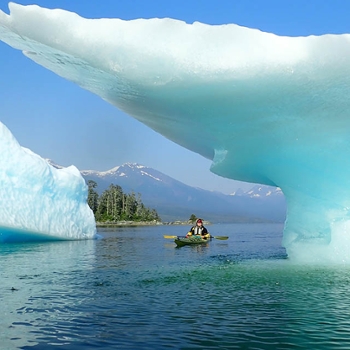
Our Research Partner: The Alaska Coastal Rainforest Center
The ACRC provides interdisciplinary research and training opportunities for undergraduate, graduate, and postdoctoral scholars to learn and work in north Pacific coastal temperate rainforest ecosystems. UAS and the ACRC work together to provide our students and graduates with the experiences and relationships they need to start their scientific careers.
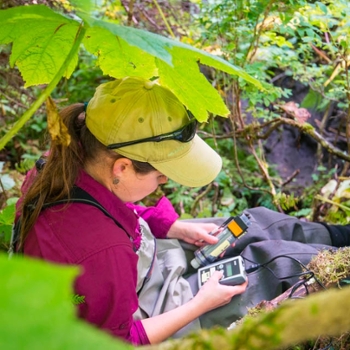
UAS Science Faculty and Alaska EPSCoR: Funding Research Projects
UAS science faculty actively work with EPSCoR, a nationwide research and education organization administered by the National Science Foundation. At UAS, students work directly with professors specializing in their fields; you’ll get the personal attention and research access needed to launch your science career.
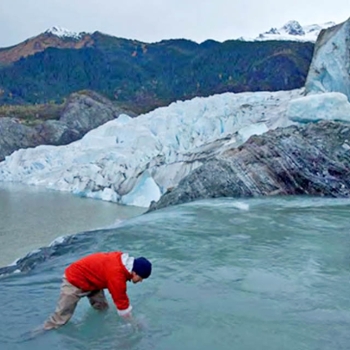
Career Pathways
Learning Environments
Outdoor Skills and Leadership
Students learn and practice the foundational skills of rock and ice climbing, hiking, camping, kayaking, backcountry skiing and snowboarding, and mountaineering, as well as swift-water rescue and wilderness medicine — courses that provide skills needed to act responsibly in the backcountry. These classes often require full-day and multi-day outings. Students must be in good physical condition and be prepared to spend many weekends in the field.
Students have the opportunity to reflect on our interaction with nature and each other with academic courses such as perspectives on wilderness, and small group communication and team building.
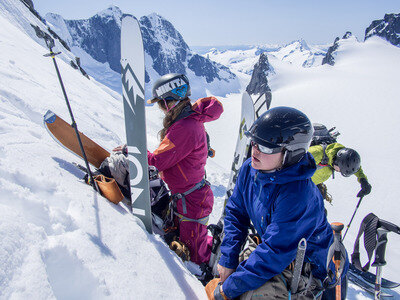
Eaglecrest Ski Area
Eaglecrest, Juneau's community ski area, offers 1,400 feet of vertical and 100-600 inches of snowfall per season. Terrain ranges from easy groomers to steep chutes, open bowls, and wooded glades.
In addition to recreation, faculty and students study avalanche dynamics and have developed operational snowpack stability and avalanche forecasting models. The environmental science program maintains a research station at the summit, monitoring weather conditions and providing real-time information on snow conditions for skiers, boarders, and patrollers.
Outdoor Studies students take advantage of the easily accessible backcountry terrain for courses in backcountry skiing and snowboarding, avalanche I and II, and mountaineering.
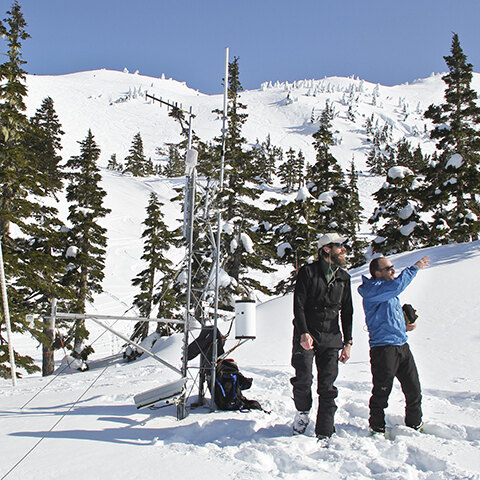
Capstone Expeditions
In addition to skills classes and outings, participants study leadership theories and learn group interaction, decision making, team building, and problem solving skills. Instructors supplement discussions with risk management analysis, guest lectures, and readings.
The final class is a capstone of the skills and theory that students develop during the program. Students and instructors design and facilitate each capstone together — these projects give students an opportunity to apply and hone their outdoor leadership and skills in a 10-15 day (variable) expedition.
Previous capstones have included expeditions to Mt. Bona and Mt. Sanford in the Wrangell-St. Elias National Park and Preserve, the West Buttress route on Denali, multi-day kayak expeditions in Southeast Alaska, climbs of Mt. Pichincha, Cayambe, and Cotopaxi in Ecuador, backcountry skiing in Japan, and a traverse of the Juneau Icefield.
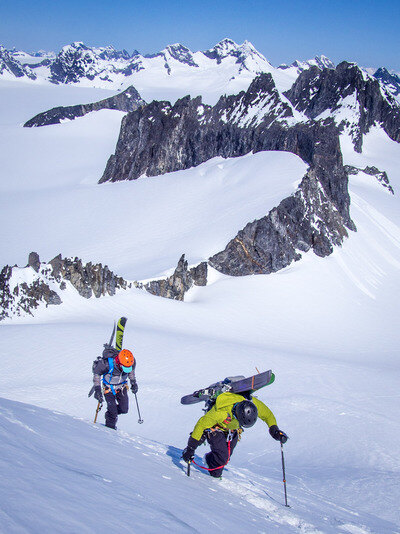
“The program unequivocally forced me to exceed my own expectations - challenging me academically and technically, and giving me the skills to become an outdoor professional. Every person with whom I participated in the ODS capstone is currently successfully employed in the outdoor industry either guiding or teaching.”